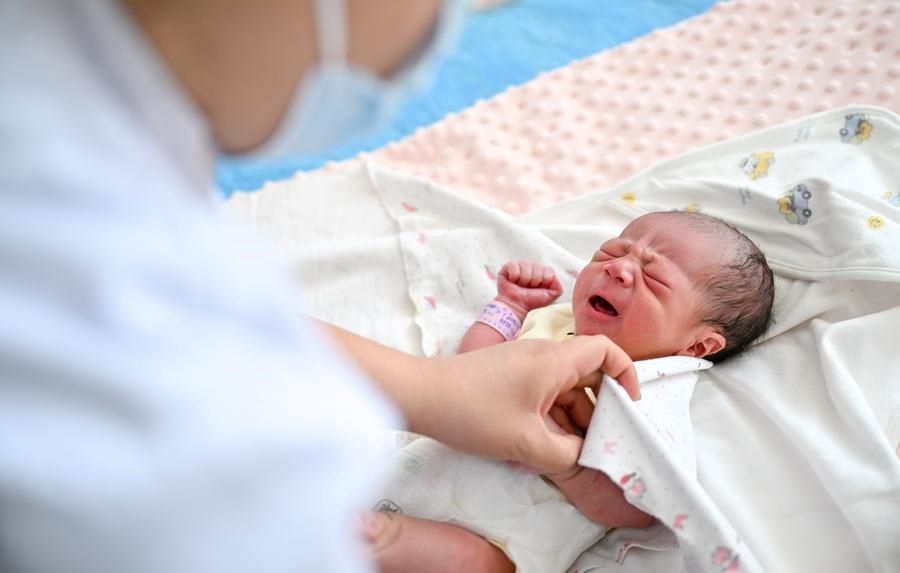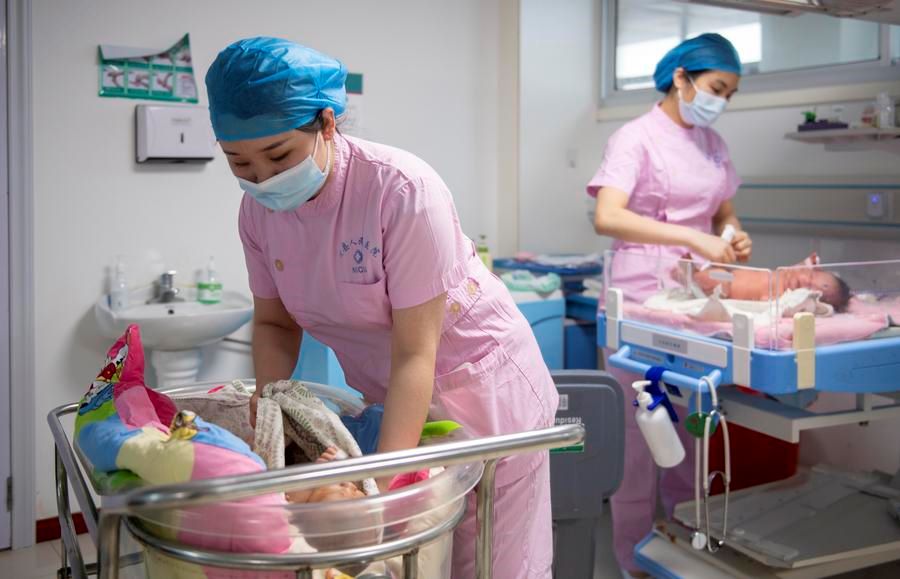
China announced on Monday that it will double down efforts to encourage and support childbirth, including improving the maternity leave system and upgrading the provision for affordable child care services.
According to a circular released by the General Office of the State Council, local authorities will be guided to include individuals in flexible employment, migrant workers and those working in new forms of job positions — such as ride-hailing drivers, delivery couriers and livestreaming sellers — in the nation's maternity insurance program, as part of a broader effort to build a fertility-friendly society and weave a stronger safety net for families looking to have a baby.
READ MORE: China unveils new policy measures to boost birth support
Efforts will be made to ensure that maternity-related time off, including maternity leave, additional maternity leave, paternity leave and child care leave, will be fully implemented. Authorities are required to coordinate funding from multiple sources and establish a reasonable cost-sharing mechanism, as well as strengthen supervision of implementing the guidelines.
China recorded a population decline for the second consecutive year in 2023, primarily because of a decrease in the number of women of childbearing ages and low willingness among couples to have babies.
As different regions have rolled out fertility subsidy policies over the past few years, the circular requests formulation of more detailed action plans and management rules.
READ MORE: Experts remind recent rise in new births temporary
The nation plans to improve its overall reproductive and pediatric services as well as expand the scope of medical reimbursement to include certain labor pain relief methods, assisted reproductive technologies and more pediatric medicines.
The circular emphasizes the need to increase government-subsidized, affordable child care services and simultaneously develop community-based child care centers and child care facilities at workplaces and homes.
It proposes a number of favorable policies to support child care centers, such as issuing operation subsidies and offering them favorable policies on tax and use of water, electricity, gas and heating. It pledges to nurture more child care professionals.
ALSO READ: Policies stress full life-cycle services in China
Local authorities are encouraged to roll out policies to help families with more than one child to enroll their children at the same school and buy homes, and to motivate employers to build a family-friendly working environment by allowing flexible office hours and remote working options.
The circular reiterated the nation's commitment to shaping a positive perspective on marriage, childbirth and family, promoting marriage and childbirth at the appropriate age, and advocating shared child-rearing responsibilities between couples.

In a statement released on Monday, the National Health Commission said that in 2023, China increased the amount of tax deduction for children's education from 1,000 yuan ($140) to 2,000 per child. The value of tax deductions related to child care and children's education will be further raised.
ALSO READ: China improving treatments for mothers and newborns
So far, a total of 23 provincial-level regions have launched fertility subsidies and more than 20 regions have expanded insurance coverage for assisted reproductive services.
All regions have extended the duration of maternity leave to 158 days or longer, introduced up to 15 days of paternity leave, and started five to 20 days of child care leave for both parents.
The commission is also accelerating steps to realize the goal of increasing the number of child care service facilities per 1,000 people to 4.5 by the end of next year.
READ MORE: Expert: More youth in China affected by sleep troubles
Couples today prefer having fewer children to ensure a better growing environment, according to the commission. Financial burden, child care responsibilities and concerns about career development among women have become major deterrents to childbirth, it said.
"The guideline has taken the public's varied demands into consideration and integrated policies on marriage, childbirth, child-rearing and children's education… to form a systematic and comprehensive policy to encourage childbirth," it added.


